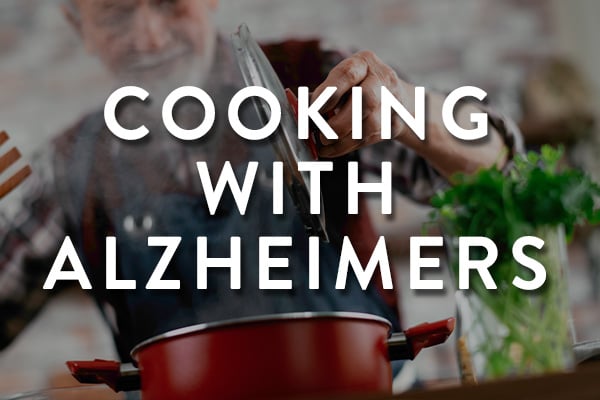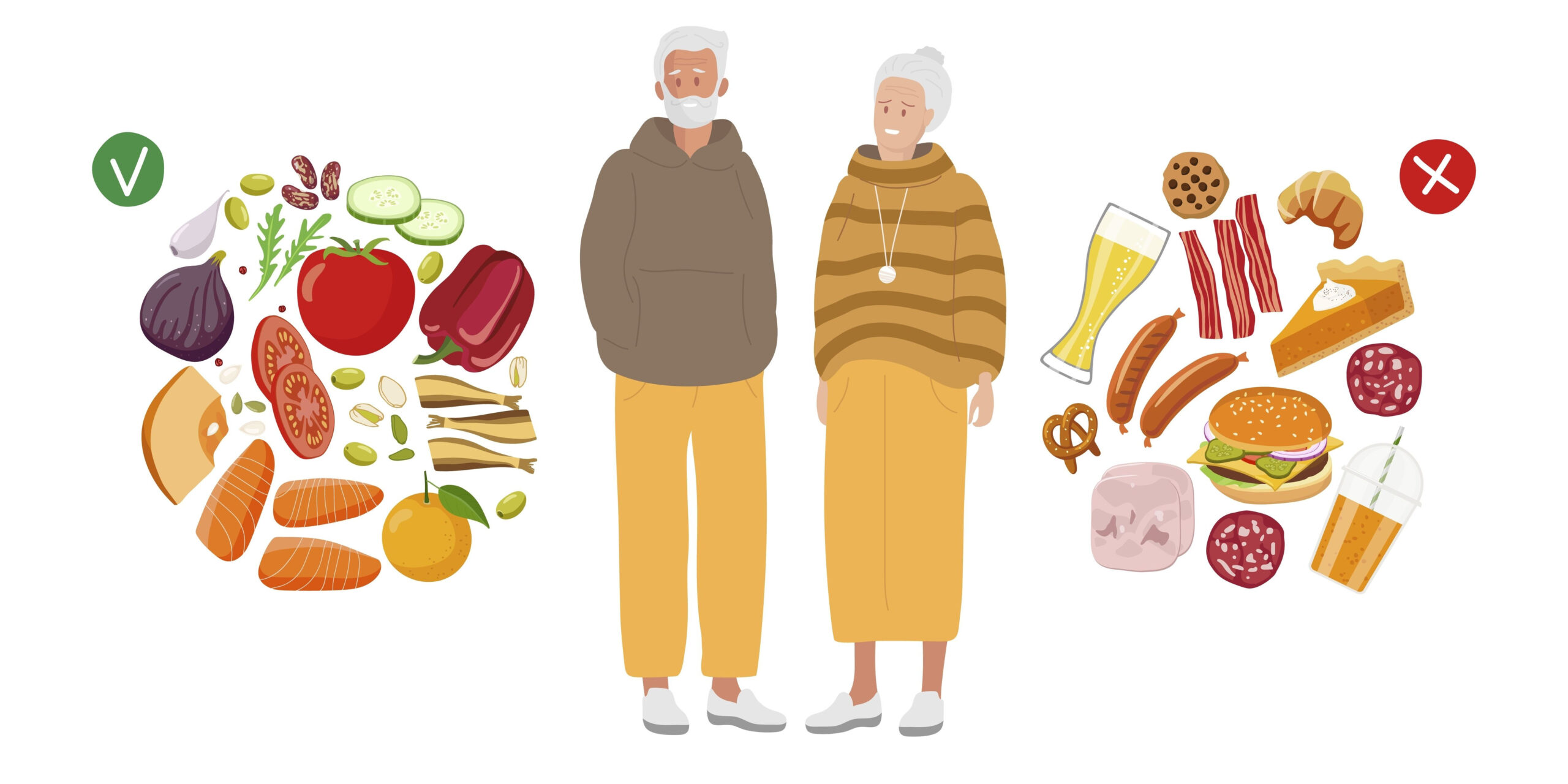
Nutrition is a key component of good health. A balanced diet is especially important for people with Alzheimer’s disease because it provides the nutrients needed to help maintain and repair brain cells damaged by the disease. Alzheimer’s disease is characterized by a loss of cognitive function, which often involves a decline in the ability to understand, organize, and use information. But this can cause people with Alzheimer’s to forget to eat, have a hard time choosing what to eat, or think that they already ate, which can raise their risk of becoming malnourished.
Why Cook With Someone Who Has Alzheimer’s?

Cooking is a great way to reduce stress and make someone with Alzheimer’s disease feel comfortable while doing something they enjoy with someone who cares about them. Cooking methods such as pressure-cooking, steaming, and grilling can also directly influence the quality of food and the absorption of nutrients for patients living with Alzheimer’s. However, it’s important that people with Alzheimer’s not be left to cook alone, as there are plenty of potential dangers. For instance, a person may begin to grill vegetables or boil pasta and then forget what they’re doing and walk away, which can lead to a fire.
Nutritional Needs

The nutritional needs of a person with Alzheimer’s disease will be much the same as those of anyone else their age. It’s important that they eat a well-balanced diet and limit their intake of foods that contain saturated fat, high amounts of sodium, and refined sugar.
Ensure that the ingredients used in meals are high in nutrients like vitamin B6, folic acid, iron, zinc, selenium, and calcium, which are important to maintaining healthy nerve cells. Folic acid is especially important for people with Alzheimer’s because it helps to prevent the buildup of protein in the brain that can damage nerve cells. Zinc is important in regulating mood, memory, and sleep and is also necessary for healthy skin, teeth, and sexual function. And selenium plays a critical role in the generation of energy within the body and is especially important for people with Alzheimer’s, who often experience a decline in energy.
According to the Alzheimer’s Foundation, foods that have a low glycemic index can reduce your risk of cognitive decline by slowing down the release of sugar into your bloodstream. However, people with Alzheimer’s disease often crave sweets due to an imbalance in serotonin levels in the brain as well as the natural loss of taste buds due to aging. To satisfy these cravings, choose nutrient-rich fruits and sweeter vegetables like carrots and sweet potatoes instead of things like cookies and candy.
Make Meal Time Comfortable

Sharing a meal can be an enjoyable experience for someone with Alzheimer’s, but it can also be stressful. To reduce barriers that may keep them from eating, be sure to minimize distractions, which can range from noise in an adjoining room to a visually busy table setting. Use solid-colored plates that contrast with the colors of the food being served so the food is easy to see. Limit the number of different things served at one time to make it easy for them to choose what to eat. Don’t rush them; it can take longer for them to finish a meal. And if they consistently experience the phenomenon of forgetting a meal that they just ate, consider stretching out meals into several smaller meals instead of just one.
Encourage Independence

As a person’s motor skills decline, do what you can to help them eat as independently as possible. Offering your loved one an opportunity to be more independent can help to reduce their feelings of frustration and anxiety and encourage a better quality of life. For instance, if forks start to become difficult, serve finger foods instead. If they struggle to scoop up food from a plate, try using a bowl. Do what you can to minimize spills by using things like rubberized place mats and cups with lids, but if they do make a mess, let them; a bit of cleanup later is better than feeding them yourself and taking away their independence.
Minimize Eating Problems

As Alzheimer’s disease progresses, it can become harder to manage basic mechanics of eating like chewing and swallowing. Watch for these issues to arise, and address them by serving foods that are easier to eat. Cut up food into smaller pieces when you’re cooking, and serve more soft foods like scrambled eggs and applesauce. Avoid foods that can be hard to chew and swallow properly, and be alert for signs of choking.
